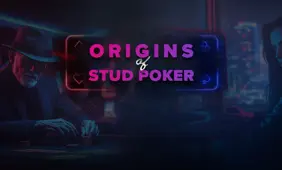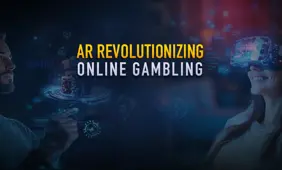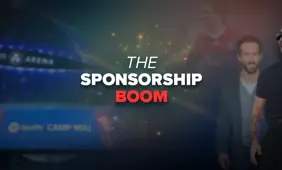Exploring Social Media's Role in Gambling Marketing and Ads

There has long been a debate that social media is one of the biggest influences on gamblers, or, indeed, new gamblers, which can be a slippery slope into gambling addiction.
Certainly, the internet and search engines, such as Google, have played a considerable part in gambling marketing over the last 15 years, with PPC (Pay Per Click) advertising being initially prominent.
In the beginning, this method proved to be substantially profitable for live online casinos and gambling companies - especially affiliate sites, because they were able to flood the search engines with attractive offers to lure in customers.
However, these were (and still are) only to be aimed at customers in countries where gambling is legal. Over the last decade, as Google’s algorithms have changed, gambling advertising has become as competitive as it has ever been. Many agencies have considerable budgets to spend on PPC, while organic marketing, such as SEO (Search Engine Optimisation), has also seen a major increase in competition.
Ultimately, SEM (Search Engine Marketing), which comprises both PPC and SEO, has formed the foundation of many gambling company marketing strategies.

Social Media’s Growing Influence on Gambling
One method of advertising that has proved to be effective for gambling companies over the years has been social media; Facebook, in particular, acts as a platform that has been very successful in converting new customers.
However, since the social media platform’s corporate structure reformed and became an entity under its own holding company (Meta), laws and gambling regulation have changed with regard to how companies are allowed to advertise – especially social media ads for gambling.
Now, operators need explicit permission from Meta to create gambling marketing campaigns on Facebook, and even then, they are required to meet numerous criteria.
The most important of which is that operators are prohibited from creating ad campaigns to target regions where gambling is illegal, in addition to not being able to target those who are underage.
In accordance with a country’s relevant gambling commission and also the associated commission that regulates gambling advertising (e.g. Advertising Standards Authority - ASA), they are also required to make sure that the language used meets exacting specifications. It cannot deemed to be false, overly salesly or misleading.
For many gambling operators with massive marketing budgets, paid social media advertising is seen as more trouble than it is worth, especially when they consider that they are already well-known, have thousands of organic followers and create television campaigns that are subject to substantial viewing figures.
As a result, affiliate websites and smaller gambling companies have identified Facebook as a potentially profitable marketing channel, though even then, this is still considerably competitive when it comes to raising awareness and standing out.
The strength of an offer in gambling advertising and how it is communicated usually makes the difference between a conversion and a failed campaign, though new and tougher regulations are making it harder for gambling companies to succeed - especially in certain regions.
Is the Public Becoming More Susceptible to Ads?
There are a few territories in the world where there are major restrictions placed on gambling companies in the interest of trying to prevent gambling addiction, and just recently, social media has been placed under scrutiny.
The UK is one of those countries that has identified the need for stricter rules to apply to gambling companies, which researchers at Bristol University claim using ‘sneaky’ social media ads to lure young people into gambling, reports claim.
According to Bristol University research, it is suggested that there is an increase in social media promotions by gambling companies that have found a way to “blur the line” between gambling and popular cultural references.
It is found that many children do not recognize this content as advertorial material and, as a result, begin following gambling companies, increasing the likelihood that they sign up when they are old enough.
All ages were quite bad at recognizing it as advertising, but children and young people were much less able to distinguish it. It’s a sneaky way to get people engaged and create a positive perception towards gambling.
One of the conclusions of the report recommended that the Committee of Advertising Practice (CAP) introduce a law that mandates gambling companies to include the message “this is gambling marketing” on all future advertorial content.
A past report discovered that the five largest gambling operators had made 19,100 posts on X (formerly Twitter) in just eight months (80 per day).
It was also found from an investigation by media regulator Ofcom in 2022 that a third of children in the UK with a social media profile between the ages of eight and 17 specified that they are age-appropriate (over 18). Worryingly, the report also found in a survey of 650 people that children were only able to correctly identify 43 percent of content marketing as advertising, compared to 65 percent of adults.
Even more astonishingly, despite these figures, it was revealed that every participant was told in advance that advertising is “the activity of making products or services known about and persuading people to buy them”.
The growth of so-called content marketing is deeply concerning as gambling companies seem to be circumnavigating advertising codes of practice. If voluntary codes are clearly not working, steps must be taken to ban content marketing in its entirety to ensure children, who spend significant amounts of time online, are being protected.
Navigating the Complexities of Responsible Advertising and Youth Protection
A spokesperson for the Betting and Gaming Council (BGC) revealed: “Advertising must comply with strict guidelines and safer gambling messaging. The government has previously stated research did not establish a causal link between exposure to advertising and the development of problem gambling. Our members have also introduced new age-gating rules for advertising on social media platforms. BGC members take a zero-tolerance approach to betting by children. The most popular forms of betting by children are arcade games and fruit machines – not with BGC members.”
The CAP also had its say, adding: “We have an overriding commitment to ensure gambling advertising is responsible, and our rules place a particular emphasis on protecting young and vulnerable audiences from potential harm. We won’t hesitate to ban ads that break those rules, particularly when it comes to issues around targeting under-18s.”
Certainly, a contributory factor is the fact that in the UK, between 2014 and 2017, according to studies, gambling companies increased their marketing spend by 56 per cent to £1.5 billion ($1.9 billion), with £896 million ($1.1 billion) of that being allocated to digital marketing - £149 million ($189 million) of which was invested straight into social media advertising.
When it comes to advertisements, there is also the conceptual element to take into account. Due to how complicated the financial makeup of a gambling offer is, even young adults have difficulty fully understanding the full implications of an offer. Inevitably, they are attracted by seemingly amazing, great-value welcome packages, that appear to offer large amounts of money as free spins or free bets.
What new customers (especially those who join via social media) fail to grasp (despite the wording being relatively clear) is wagering requirements, where they have to gamble a welcome offer ‘x’ a number of times before they can make a withdrawal. By the time many people realize what is going on, it is already too late because they are hooked.

Challenges of Regulating Social Media Ads in the US
Newly regulated spots, such as numerous states in the US online gambling market, are still very much in their infancy when it comes to online gambling and, as a result, are the home to many potential gamblers who may effectively be completely clueless to the dangers of potentially harmful social media ads. There is also the fact that the US is very much behind the UK when it comes to policing the dangers of gambling and relevant commissions.
One such example would be the 2016 US presidential election, where it was understood that a vast number of citizens failed to recognize the use of propaganda via Facebook advertisements.
It does present a worrying problem for the US gambling industry - especially when there is no central organization, and each state has its own separate jurisdiction. It essentially means that potentially millions of new customers are at risk from social media gambling advertisements - especially if US gambling companies adopt strategies that those in the UK have been doing and blurring the lines between content marketing and advertising to hook underage prospective customers early.
There is also the fact that many in the US may not even completely understand gambling jargon yet and, ultimately, just be attracted by the seemingly advantageous numerical benefits presented in welcome packages without realising the dangers of the small print.
Despite a number of states in the US allowing online gambling, many are regulated nowhere near the standards of the UK market, which poses considerable potential problems.
And while Facebook can still make a profit from gambling companies (a new lucrative industry in the country) without there being too much interference from governmental agencies, gambling companies advertising to potential customers in the US are unlikely to change tactics too much when it comes to their customer acquisition strategy.
It is also understood that 97 percent of Americans have a mobile phone (330.8 million people), with 188.6 million of these reported to be on Facebook; a staggering number - regardless of whether these are potential underage gamblers or not.
Ethics and Economics in Social Media Gambling Ads
What is clear is that there definitely needs to be a certain amount of reform when it comes to social media advertising for gambling companies and what is allowed. It appears that enough awareness may have now been raised in the UK - a market that seems to set the standard for gambling legislation in the industry.
There is also the fact that many gambling companies operate in multiple markets (countries), and because of this, they quickly realize what they can get away with in one country compared to others.
Arguably, the safest solution to avoid any misunderstanding is a blanket ban on any social media advertising for gambling companies; however, this is highly unlikely. What appears to be certain is that this will continue to remain a problem for years to come, and gambling companies will continue to find creative ways around possible restrictions. For now, at least, social media gambling advertising looks to be here to stay.





Review this Blog
Leave a Comment
User Comments
comments for Exploring Social Media's Role in Gambling Marketing and Ads